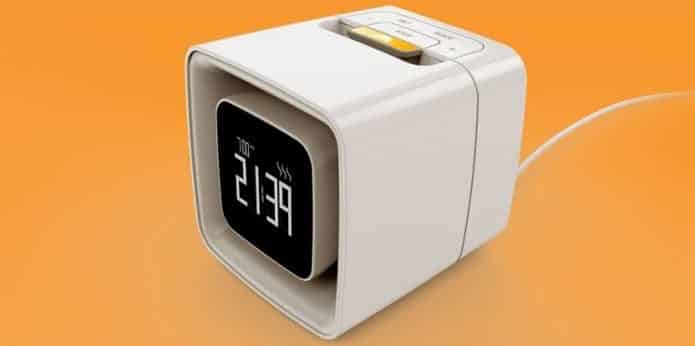Sensorwake Alarm Clock Wakes You With the Smell of Fresh-Brewed Coffee And Just-Baked Croissants
Do you get annoyed with all the crazy alarms that use beeps, flashing lights, and vibrations to wake you up in the morning? This may now become a thing of the past. You can now wake up to the smell of chocolate, peppermint, fresh-brewed coffee, and just-baked croissants.
Currently, debuting at the Consumer Electronics Show (CES) in Las Vegas, Sensorwake, takes a vastly different approach to getting your attention when it’s time to wake up. Thanks to the “timed release of an aroma of your choice”, the clock uses smell instead of sound to wake you.
Sensorwake is a Paris-based startup that has become part of an incubation program with Google France after winning a Google Science Fair competition.
The brainchild of Guillaume Rolland, a 19-year-old engineering student from France, the Sensorwake was successfully crowd-funded last year to the tune of US$200,000 (AU$284,412).
With reusable scent capsules inserted into a slot along the top edge of the clock, the device functions a little bit like a toaster. Each cartridge has a lifespan of thirty uses and can be purchased on the Sensorwake website. They cost $10 for two, so that’s two months’ worth of smelly wake-up calls, and they are 100 percent recyclable.
Six aromas will be available at launch such as “Espresso,” “Hot Croissant,” “Chocolate,” “Invigorating Peppermint,” “Seaside” (monoi, tiare flower) and “Lush Jungle” (cut grass, leaves).
“Human beings were not meant to wake up to iPhone alarms,” Rolland said. “We are proud of everything we’ve accomplished so far, and we want to keep bringing happiness to our customers’ mornings.”
The alarm clock works by using a cartridge, similar to how some plug-in air fresheners work. When the alarm goes off, it diffuses the scent for three whole minutes.
But do scents work as well as a regular audio alarm in terms of waking you up? Rolland claims that the Sensorwake is just as good as audio alarms, with internal testing showing his scent-based alarm wakes 99 percent of people in 2 minutes.
The Sensorwake could be as effective as Rolland claims; however, previous research on the rousing abilities of scents hasn’t been so positive. A study in 1997, conducted by fire and rescue workers in Irondale, Alabama was designed to test whether adults woke up in the presence of smoke, water and citrus odours. It showed only two out of 10 sleeping adults woke up when they were exposed to smoke or aromas.
A subsequent study at Brown University in 2004 also found that scents were not particularly effective at waking sleepers. Pepperment and pyridine scents were presented in different concentrations to sleepers at different stages of sleep. The odours scored mixed results, while audio tones played over a speaker were significantly more effective at rousing the sleepers, leading the researchers to conclude that “human olfaction is not reliably capable of alerting a sleeper”.
In addition, a subsequent study at Brown University in 2004 suggests scents of both peppermint and pyridine were not effective in waking sleeping participants. However, Sensorwake has been designed with a backup audio alarm that can be activated if the person does not wake up after three minutes with the aroma.
The Sensorwake comes with an insurance policy for any sleepers who aren’t roused by its primary feature. For extra-heavy sleepers or those with stuffed noses, there is a backup sound alarm that you can program to ring if you don’t hit the off button after three minutes of scent.
Available for pre-order now, it’s expected to ship in June 2016 and to hit retail stores in November 2016. It costs $109 in the US (about AU$151 or £74 converted). Pricing and availability in Australia and UK have not yet been announced.

